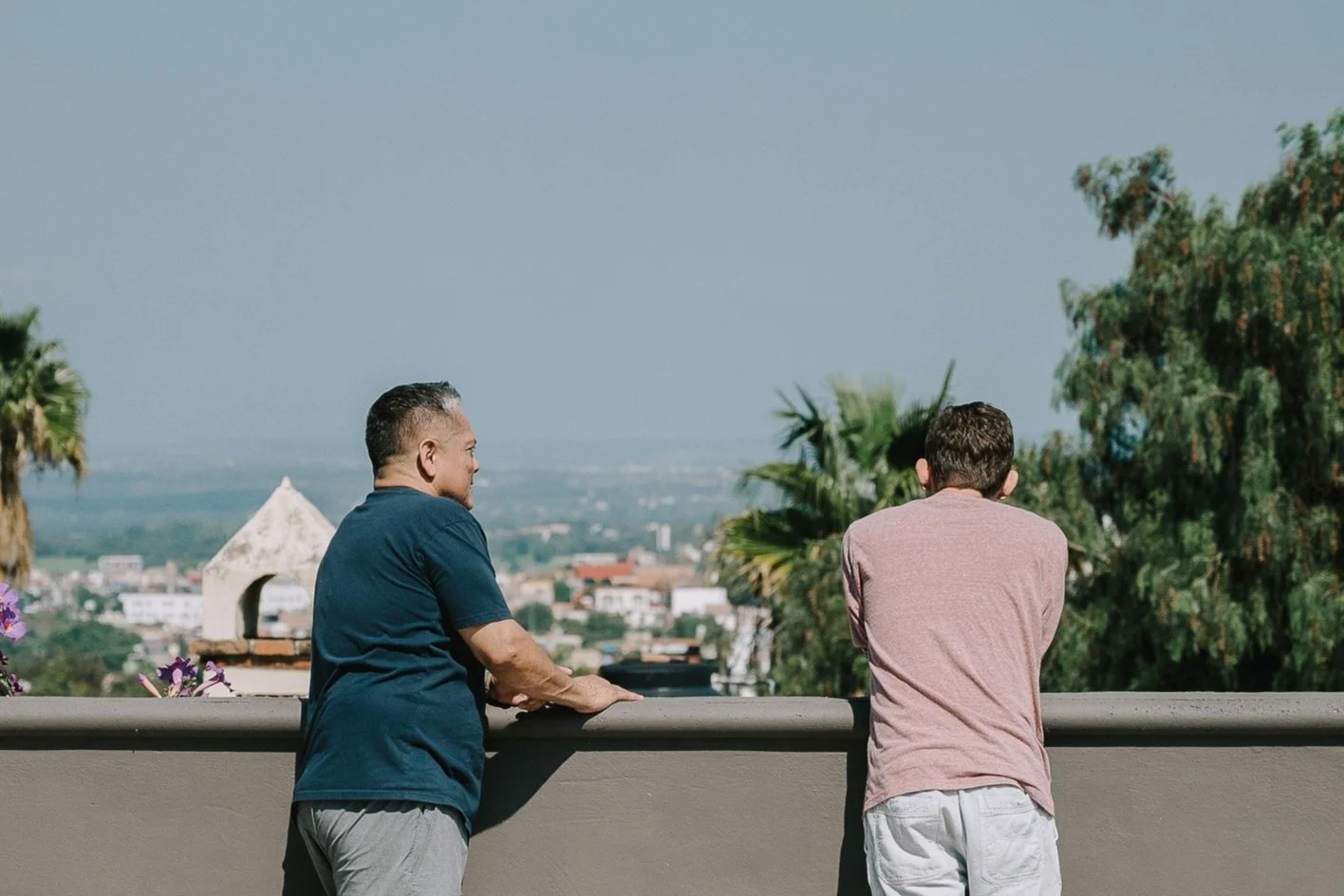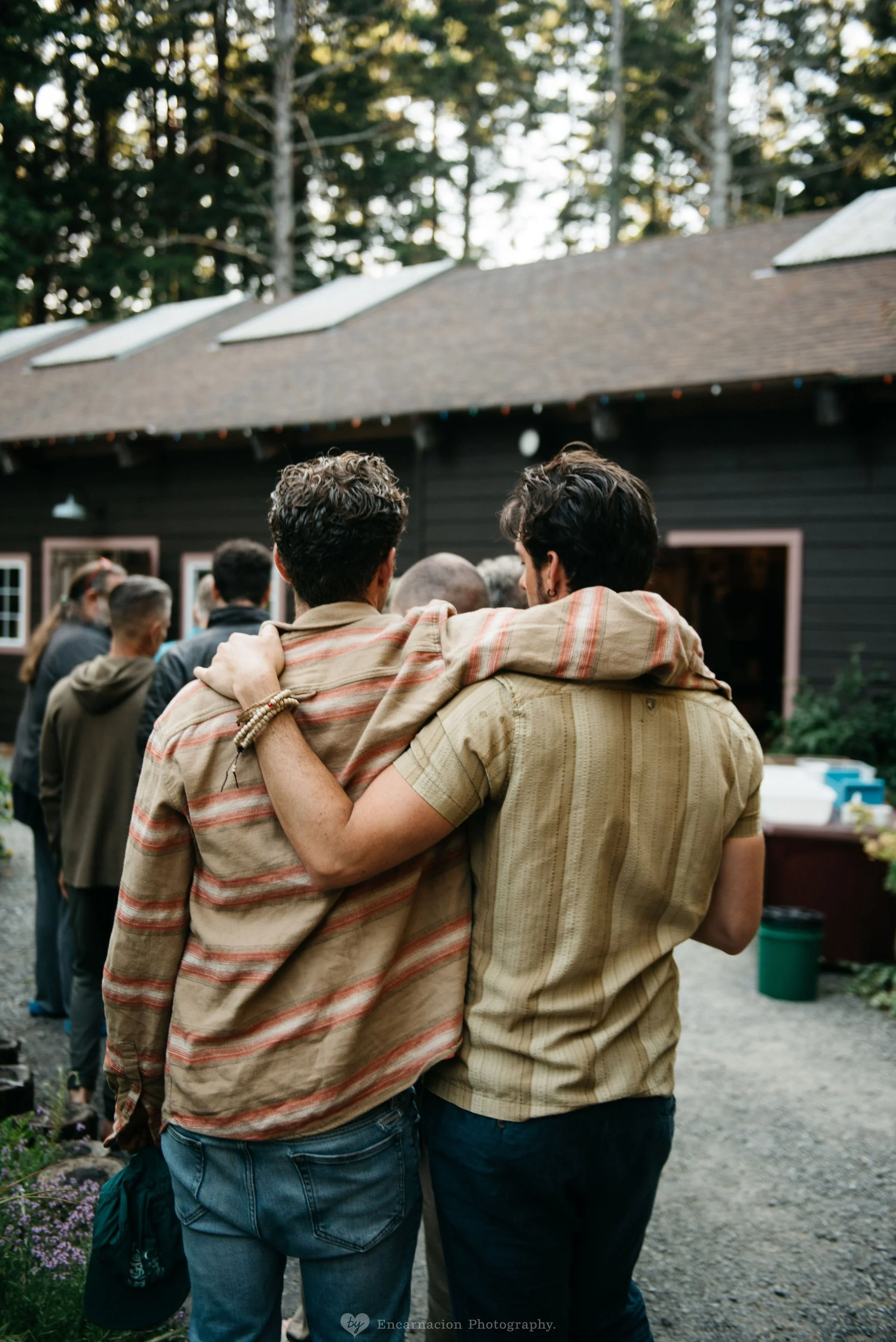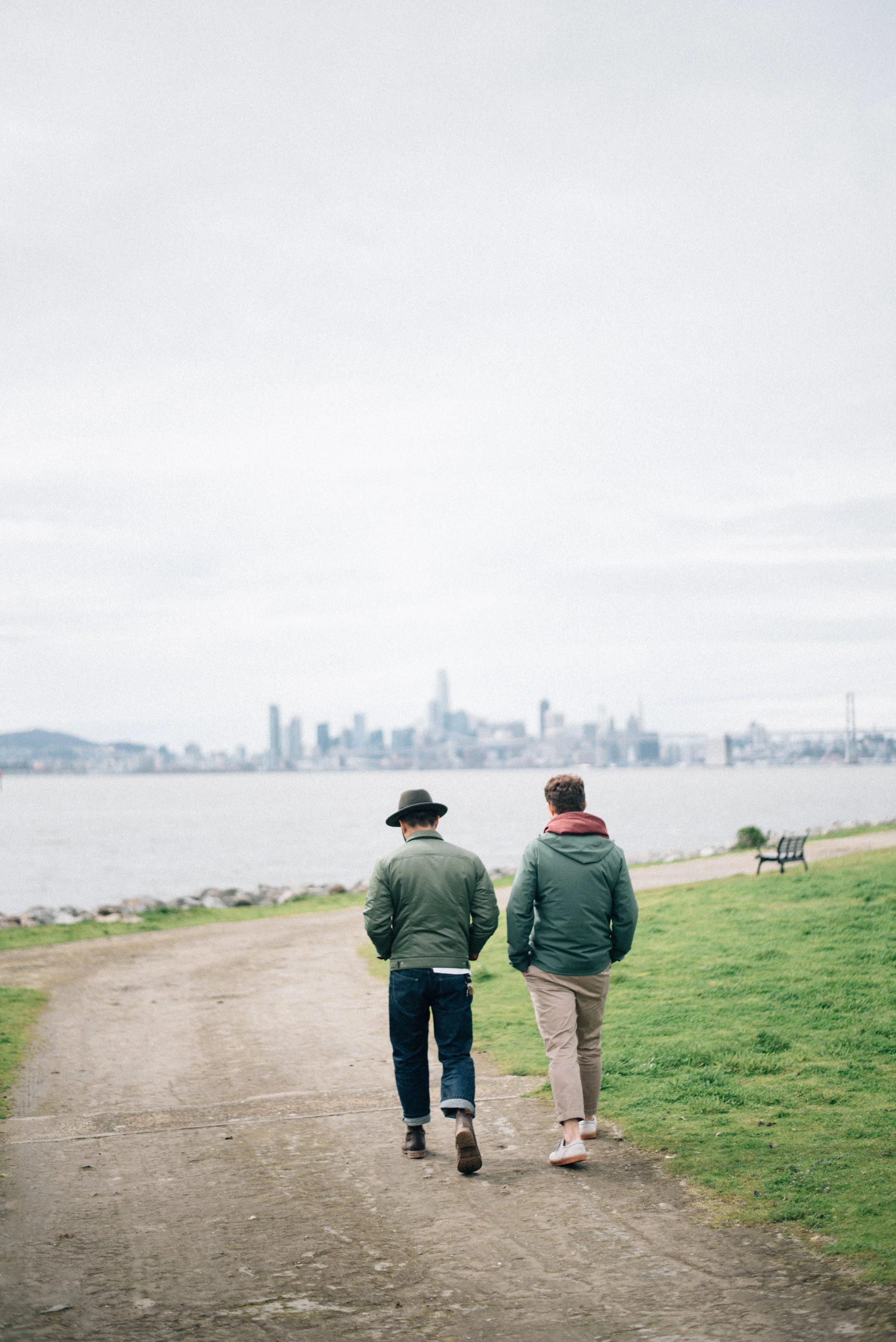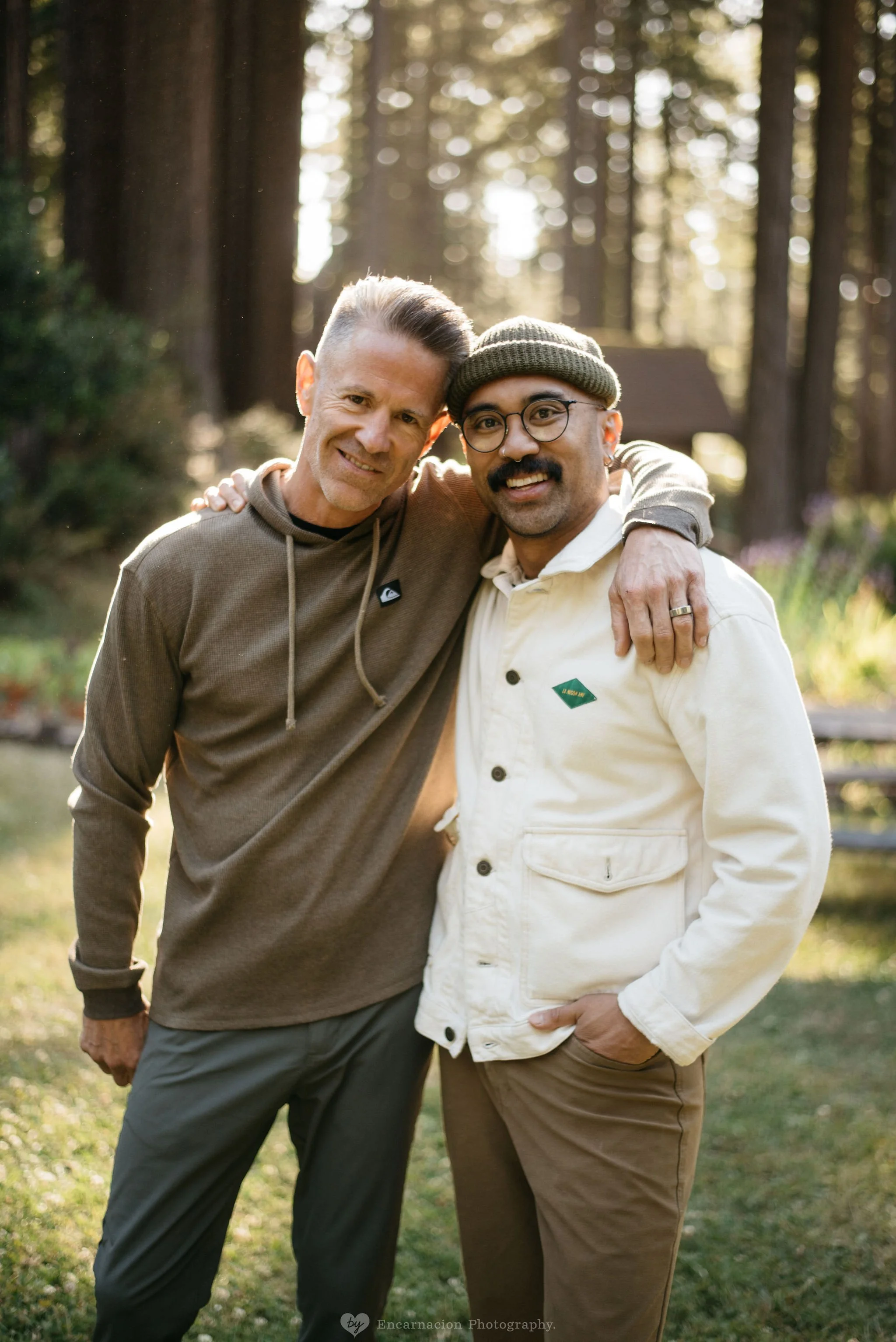The Love Between Men: What Sam Graham-Felsen Gets Right About Male Friendships
Inspired by "Where Have All My Deep Male Friendships Gone?"
There’s something deeply heartbreaking about realizing you haven’t had a real conversation with one of your best friends in years. Not because you fought. Not because you grew apart. But because life got in the way—and maybe, somewhere along the line, so did fear and shame. The male loneliness epidemic has been happening for years, and it’s now been given a spotlight. Men with huge platforms on both sides are talking about it (albeit differently). From Professor Scott Galloway to Jordan Peterson. From Dr. Vivek Murthy to Joe Rogan. From Terry Real to Senator Josh Hawley. There’s a real problem with American men: early death from loneliness.
In his powerful essay for The New York Times Magazine, Sam Graham-Felsen puts words to what so many men feel but rarely admit: we’re lonely. Not just socially. Emotionally. Relationally. And maybe even spiritually.
Sam was struggling with his finances, career, being a provider, and a father, but didn’t have anyone to talk to about it. Therapy was inaccessible, and he felt “out of practice” in his friendships. He continues, “These were just the sorts of anxieties I once would have shared with a good friend, but somehow that now seemed impossible.” What Sam describes isn’t just nostalgia for late-night hangs or the freedom of youth. He’s pointing to something deeper. A kind of intimacy between men that used to be normal and now feels nearly extinct. It’s in our nature to be in community, to have men in our corner rooting us on or mentoring us through tough times. But what doesn’t get talked about enough—and this might be an unpopular thought—is that too many men equate intimacy and affection with homosexuality. I’m not saying it’s always conscious, but I believe many men don’t develop intimate and affectionate relationships with other men because of homophobia. They are afraid of being perceived as gay or queer. And I know those perceptions very well.
Friends rekindling their friendship at WILD HEART Men’s Camp in Mendocino, CA.
📸: Jonathan Encarnacion
Sam writes, “I never had sexual feelings for Rob, but there was an intensity to our connection that can only be described as love.” That line stopped me. Sam admits something that many men are afraid to say. To be in love is a special experience. And I don’t believe that being in love is always romantic. My husband taught me that early on in our relationship. Jerry shared with me that he had fallen in love with one of his friends, and it totally made sense to me because I know that kind of love. I’ve felt it. I’ve missed it. And I see men every day who are quietly craving it too. The kind of love that doesn’t have to be sexual to be intimate. The kind of closeness where we don’t have to prove anything—we can just be.
And yet, for so many men, that kind of connection has slipped through the cracks. Between career, marriage, kids, and the unspoken rules of masculinity, male friendship often becomes the first thing to go.
“Only 26 percent of men reported having six or more close friends... 17 percent have zero.”
Psychologist Niobe Way quotes a 15-year-old boy in her book Deep Secrets: Boys' Friendships and the Crisis of Connection: “[My best friend and I] love each other... that's it... you have this thing that is deep, so deep, it's within you, you can't explain it... I guess in life, sometimes two people can really, really understand each other and really have a trust, respect, and love for each other. It just happens, it's human nature.”
Men often prefer connecting side by side while doing an activity. 📸: Jonathan Encarnacion
Way’s research indicates that boys in early and middle adolescence often form very deep friendships where they openly share their thoughts and feelings. I can relate to this. However, as they become young adults (around the age of 18), they feel pressured to conform to traditional notions of masculinity: man up, be a man, don’t be gay, no homo, be tough, boys don’t cry, etc. And what happens is exactly what Sam writes about.
There’s also something polarizing happening in the “manosphere.” Somehow, crypto, ice baths, breathwork, men’s wellness, and figures like Charlie Kirk get bundled into a crude image of modern masculinity—a man who invests, optimizes his body, and says outlandish things. And while some of these practices have merit, I sometimes see them as distractions from what really needs attention: a man’s relationship with his Self and other men. Men need purpose in their lives. But I often see them chasing purpose without a deep sense of meaning. And definitely chasing purpose alone.
Sam talks about diving into self-help podcasts, intense workouts, and Goggins-style grind culture as a way of coping with his loneliness. And while there’s strength in physical resilience, there’s also something quietly devastating about the belief that we have to suffer our way into worthiness.
Sam confesses, “I was hard enough to work out for 1,000 straight days, but I still wasn’t hard enough to call my friends.” Oof. The real courage? It's not running ultramarathons. It’s reaching out. It’s staying open. It’s asking a friend how he’s really doing.
Wellness and feeling good isn’t just physical—it’s profoundly emotional and relational. Can you really feel good if you don’t have friends? Can you be healthy if you’re lonely? Can you live a good, long life if you don’t have community?
The answer is no. Relationships are intricately woven into the fabric of our health and wellness. Having a partner isn’t enough. We need people in our lives that we can lean on. I often ask my clients, “Who are your flat tire friends?” The kinds of friends you can call in an emergency. If no one comes to mind now, perhaps it’s your time to develop them.
Tom and I met at a men’s retreat in 2018. He’s one of my closest friends. 📸: Jonathan Encarnacion
Fear makes us avoid. Shame makes us hide. These two emotions often show up in men who don’t have close friendships. Fear keeps them from reaching out. Shame convinces them to stay small, to hide, to question their worth. But emotions are just information, they tell us what need is or isn’t being met. Without emotional awareness, it’s almost impossible to solve what’s really going on underneath.
I’m lucky to have a few men in my life who meet me with emotional maturity. These are guys who’ve done personal work. Maybe they’ve been to a retreat. Maybe they sit in a men’s group. I know what it feels like to have friendships that are bland and superficial, and I also know what it feels like to be in friendships that are intimate, affectionate, and full. Those are the relationships I invest in.
For friends who live in another country, sometimes it’s a text once a month. Sometimes it’s a call every few months. For friends who live in my town, it’s a lunch date every couple of weeks, plus something active—like yoga or a walk. These small moments of connection are what I think of as “relational maintenance”. They keep the friendships alive. They help me feel grounded. And I know they do the same for the men on the other side.
I don’t feel lonely. I haven’t for a long time. And I don’t think it’s luck. I think it’s because I put in the work.
This is why I created SHIFT Men’s Retreat.
SHIFT isn’t a place where you learn how to become more manly. It’s where you remember who you are beneath all the roles. We don’t just talk about our struggles—we move through them. We breathe, we laugh, we reconnect with our bodies, and we sit with each other in the stuff that usually gets ignored. It’s not therapy. It’s not self-help. It’s a return. To your nervous system. To your emotional self. To a community.
We spend six days together in Baja California Sur, next to the ocean and under the warm sun. This is a week where men get back on track and heal parts of themselves that have been exiled. Men leave with tools, with clarity, and most importantly, with relationships they didn’t know they were missing.
“I didn’t have to crush life. I was allowed to enjoy it—had been all along,” Sam writes.
If Sam’s article touched something in you, maybe that’s your cue to make a shift.
Join us.
Not sure if you’re ready for a men’s retreat? Check out this article to see if you’re a good fit.





